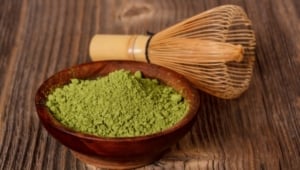Black Coffee: 10 Health Benefits & 6 Side Effects

Black coffee is a true all-rounder in terms of physical health. In addition to the diverse and healthy effects, the hot drink can also have some side effects. We’ll tell you why black coffee is good for you and on what conditions the beverage could be bad for you.
Next to tea, coffee is one of the most popular drinks there is. Worldwide, people quaff nearly three billion cups of the hot beverage each day.
What Black Coffee is and How Many Calories it Has

Facts about black coffee and calorie content
Whether Americano, Flat White, or French Press – coffee can be prepared in many ways.
However, the healthiest is black coffee without additional calories from sugar or milk.
Calculated on 100 milliliters (3.4 ounces), coffee scores well with just two kilocalories — a very low amount. Black coffee can be seen as a very healthy beverage.
The following ingredients are contained in the popular drink:
- Water
- Proteins
- Acids
- Alkaloids
- Carbohydrates
- Fatty substances
- Vitamins and minerals
- Flavorings
Decaffeinated coffee is most suitable for people who want to avoid caffeine-induced side effects while still profiting from the health benefits of coffee.
However, before purchasing, make sure that the essential coffee quality criteria have been met during preparation and that the coffee beans have undergone a gentle roasting process.
This is How Much Caffeine (Black) Coffee Has
How much caffeine your cup of coffee has depends on several factors:
- Roast
- Grade of grind
- Pulling time
- Water temperature during steeping
Apart from this, different types of coffee have different caffeine content. While Arabica beans contain between 0.6 and 1.4 milligrams of caffeine per 100 grams (3.5 ounces) in their raw state, Robusta beans contain between 2.2 and 4 grams of caffeine.
The following table contains the average caffeine content of various coffee preparations compared to other caffeinated beverages.
| Beverage | Caffein content per 100 milliliters |
|---|---|
| Matcha | 270 Milligram |
| Espresso | 212 Milligram |
| Filter coffee | 50 Milligram |
| Mate-Tea (chimarrão/ cimarrón) | 35 Milligram |
| Energy-drink | 30 Milligram |
| Instant coffee | 26 Milligram |
| Black tea | 20 Milligram |
| Green tea | 20 Milligram |
| Decaffeinated coffee | 2 Milligram |
Daily Dose

How much caffeine you should consume per day
According to the European Food Safety Authority, an intake of 400 milligrams of caffeine (four cups of coffee) throughout the day is considered safe.
As a rule of thumb, you can safely consume 5.7 milligrams of caffeine per kilogram of body weight over a 24-hour period. However, these amounts have only been classified as harmless for the healthy general population.
If you suffer from a medical condition or consume alcohol in larger amounts, you should check your personal caffeine limit with a health care professional.
Black Coffee During Pregnancy
During pregnancy, you should be careful not to drink too much coffee, because the caffeine in the morning pick-me-up also has effects on the baby. According to a Norwegian study of 60,000 subjects, drinking coffee is said to result in lower birth weight for the baby.
The children of mothers who drank one cup of the caffeinated beverage a day were about 28 grams (about one ounce) lighter than the average of 3,600 grams (nearly 8 pounds) of body weight.
If the child is healthy, this value is harmless – but in premature babies or newborns with inherently lower birth weight, effects on later development cannot be ruled out.
Coffee while Breastfeeding
Nursing mothers should also limit their coffee consumption. Otherwise, the child may become restless, develop sleep disorders and suffer from abdominal pain. If you still can’t give up coffee, you should drink it after breastfeeding your baby. Thus, the body can break down the caffeine until the next breastfeeding period.
Benefits of Black Coffee: Why drinking It is Good for You

Benefits of Black Coffee
The ingredients in black coffee affect the human body in many different ways.
In this section, you will learn exactly how the stimulating drink is good for your health.
By the way, untreated and unroasted coffee is called "green coffee".
Increases Performance
Coffee is especially popular for its performance-enhancing effects. The caffeine it contains delays your fatigue and improves both attention and reaction time, as well as concentration and mood.
The hot beverage is especially valued among athletes, as drinking coffee boosts athletic performance. However, the effect on endurance and weight training only comes into play if you consume coffee specifically before exercise.
Various studies have shown that caffeine intake is beneficial for muscular endurance, muscle strength and speed of movement.
The optimal caffeine dose for athletic performance is between three and six milligrams (3.5 ounces) per kilogram (2.2 pounds) of body weight – which you should ideally consume one hour before training. If you drink coffee every day, however, you will see very little benefit from this effect.
Good for Gastrointestinal Tract and Digestion

Good for gastrointestinal tract and digestion
Coffee is known for one benefit in particular: It speeds up and improves your digestion.
To understand the laxative and mobilizing effect, it’s worth taking a look at the hot beverage’s affect on your stomach.
The bitter substances contained in caffeine speed up the production of gastric acid. The latter breaks down the food pulp in your stomach before it migrates to the intestinal tract.
Specifically, the caffeine and other bitter substances contained in black coffee bind to the bitter receptors in the stomach. In the intestines, the bitter and tannins then promote blood flow and, consequently, intestinal motility.
In addition, increased secretion of gastrin can be observed after the consumption of coffee. This endogenous hormone is released as soon as food enters your stomach – it stimulates muscle contraction of the stomach wall. Coffee is therefore a good way to boost your digestion.
Instant coffee (also called soluble coffee, coffee crystals, coffee powder, or powdered coffee) is a little different from regular coffee from a health perspective. Although it contains less caffeine, some ingredients are present in concentrated forms.
Due to stronger processing, for example, the content of acrylamide is higher. Acrylamide is formed whenever we fry, boil or roast something.
In animal studies, the substance has proven to be carcinogenic and mutagenic – but the effects on humans have not yet been adequately researched.
Prevents Gallstones
Research by Danish scientists has shown that coffee drinkers suffer less from gallstones.
The researchers found that each additional cup of coffee (at up to six cups a day) reduces the risk of gallstones – by up to three percent. Compared to non-coffee drinkers, the subjects even had a 7 to 23 percent reduced risk of gallstones – depending on coffee consumption.
Cranks up Your Metabolism and Helps You Lose Weight

Black Coffee is good for weight loss
The caffeine contained in black coffee can really fire up your metabolism.
For example, it stimulates your central nervous system and also increases fat burning. In addition, caffeine as a so-called alkaloid provides for increased heat production (thermogenesis) and an increase in blood pressure.
To explain this in more detail: For your body to function properly, it needs energy. Through thermogenesis, you burn excess energy and release it as heat, which has a positive effect on fat burning. Apart from that, caffeine also acts as an appetite suppressant and thus can help you lose weight.
Drinking coffee with freshly squeezed lemon juice is a new diet trend that promises to support weight loss. After all, both components stimulate fat burning.
Both lemon as well as coffee fire up your metabolism and restrain your appetite through the acidic content. Thus, the drink should additionally reduce food cravings.
Eases Headaches

Black coffee eases headaches
Headaches, especially migraines, are usually caused by dilated blood vessels in the brain. Consequently, this increases blood flow to your brain.
The increased blood flow then triggers certain mechanisms in the brain, which in turn leads to headaches. However, caffeine works against high blood flow by constricting the blood vessels.
Researchers concluded that coffee can reduce blood supply to the brain by a full 27 percentage points.
Incidentally, caffeine also alleviates headaches by making painkillers more effective. In fact, caffeine improves the body’s absorption of painkillers, which is why you’ll find it an ingredient in many combination supplements.
Tip: If you suffer repeatedly from short-term migraines (on up to 14 days per month), then coffee may provide relief.
It is important that you do not take more than 90 milligrams of caffeine, i.e. about half a cup of the hot drink per day. If you exceed the value, then you increase the risk of further headaches or migraine attacks.
Promotes Water Excretion

Promotes Water Excretion
Another well-known effect of the hot beverage is the increased urge to urinate because coffee promotes the excretion of water from your body.
The reason for this is the short-term increased filtering function of the kidneys and the formation of urine after coffee consumption.
However, you only benefit from the "flushing" effect when you drink more than six cups per day.
After drinking coffee, you excrete about 84 percent of the liquid within 24 hours – with water it is just three percent less.
The so-called Kopi Iuwak is considered the most expensive coffee in the world. A cup of the Indonesian drink can cost up to 40 euros (approximately 44 American dollars or 34 British pounds sterling). The reason for the price is the rarity of the beans as well as their extraction.
To make the coffee, the coffee bean must be eaten by the civet (toddy cat) native to Indonesia. The half-digested coffee bean is excreted again by the animal and then processed.
Helps with Diabetes
Coffee is also believed to show its benefits in diabetes mellitus. Scientists suspect that the hot beverage may improve insulin sensitivity and thus lower blood sugar levels.
Insulin sensitivity indicates how strongly your body cells respond to the hormone. Even in the preliminary stages of type 2 diabetes mellitus, sensitivity is markedly reduced. The result is an excessively high blood sugar level, which can lead to organ damage in the long term.
The daily consumption of coffee can therefore improve glucose tolerance after a few weeks, as your body removes the sugar from the blood more quickly.
So in the long run you lower the risk of diabetes. Researchers estimate that the effect is due to the chlorogenic acid contained in coffee. Chlorogenic acid has antioxidant properties.
Coffee Lowers Risks for Cancer

Black Coffee lowers risks for cancer
For a long time, researchers thought coffee might be carcinogenic. However, some scientists now believe the opposite is true.
A study by the World Health Organization’s International Agency for Research on Cancer said the beverage can reduce the risk of liver and uterine cancer.
Other studies have concluded that the risk of pancreatic and prostate cancer is also lowered by coffee consumption.
The reason for this could be the antioxidants in the drink. However, the influence of antioxidants on cancer is also controversial.
Some scientists believe that antioxidants inhibit the development of cancer, while others believe the opposite. In summary, studies on the influence of coffee on cancer are controversial.
Protects against Strokes
Similar to tea, black coffee is able to reduce the risk of stroke. People who drink two to three cups a day have a 32 percent reduced risk of stroke.
That’s according to a study based on data from about 365,000 people. They were analyzed over a decade. However, the research team points out the limitations of the study results, because only a few people out of the general population develop strokes to begin with. This directly complicates the extrapolation.
Helps with Depression

Black coffee against depression
The caffeinated hot beverage also affects mental well-being by having a preventive effect on depression.
At the very least, various studies have concluded that black coffee has a protective effect due to its ingredients.
In one study, researchers repeatedly exposed rats to stress, which led to anxious and depressive behavior in the animals.
Over an extended period of time, the rats received caffeine via oral administration. The researchers observed that the consumption of caffeine had effects similar to those of an antidepressant.
Another study conducted on rats concluded that the synapses of the animals' brains no longer functioned properly under continuous stress.
However, the administration of caffeine blocked a specific gene, protecting the rats from depression. According to a Chinese study, about 400 milliliters (just over 1 and a half cups) of coffee per day should be the best prophylaxis against mental illness.
Side effects – When and Why Black Coffee Can Be Bad for You

Side effects of black coffee
Unfortunately, the consumption of coffee is also associated with a number of side effects and risks, which we will present to you in more detail in this section.
Promotes Heart Palpitations
Palpitations as well as cardiac arrhythmias are side effects that many coffee drinkers are familiar with – they are among the symptoms of intoxication.
While some people can easily drink ten cups of the caffeinated beverage a day, others get palpitations from just one cup. The tolerance of the drink is clearly very individual.
The tannins in coffee may be responsible for the particularly sensitive reactions – but this has not yet been precisely researched. The palpitations are usually caused by the blocking of certain receptors in the body.
Caffeine binds to the same receptors as the body’s own substance adenosine, which prevents the release of invigorating and activating messenger substances.
Promotes Sweating
Drinking coffee causes sweating – and this is not an infrequent occurrence, especially in sensitive individuals. The reason for this is the effect on the central nervous system. Caffeine leads to an increased provision of energy in the body, for example, by increasing the pumping capacity of the heart and blood pressure.
This in turn results in the activation of the sweat glands. If you suffer a lot from the diaphoretic effect, you can limit your consumption or resort to decaffeinated coffee.
Coffee Leads to Sleep Disorders

Sleep disorder
As a psychoactive substance, coffee may also have effects on sleep.
Caffeine can affect both sleep onset and sleep duration, but it primarily reduces the time of so-called slow-wave sleep – deep sleep.
If your caffeine consumption regularly interrupts sleep, then you may experience significant sleep deprivation. This, in turn, can have a negative effect on your daily life.
Older adults in particular are affected by caffeine-induced sleep disorders. As a general rule, you should avoid caffeine at least three hours before bedtime.
Causes Headaches
We have learned that black coffee can help against headaches but it can also cause them in some cases. For example, more than two cups of coffee a day is said to promote headaches. This is especially true for people who suffer from frequent headaches or migraines.
Coffee withdrawal can also trigger headaches. Caffeine constricts the blood vessels in the brain, which is why the blood flows more slowly there. If you then stop the caffeine intake, the vessels widen again. Consequently, the blood flow increases again and speeds up. This in turn leads to headaches.
Causes Gastrointestinal Problems

Gastrointestinal problems
The bitter compounds in black coffee are known to cause gastrointestinal problems, and not infrequently.
Especially if you drink coffee when your stomach is empty, you should be prepared for unpleasant side effects.
This is because the hot beverage is known to stimulate gastric acid production. If your stomach is empty when you drink coffee, the increased acid production can cause stomach pain. By the way, coffee contains more than 80 different acids, for example linoleic acid and citric acid.
However, most of them are broken down during the roasting process. If you suffer from stomach pain or diarrhea when drinking the hot beverage, you should resort to gently and slowly roasted beans.
Tip: If you suffer from diverticulitis, coffee can increase abdominal pain and diarrhea. Therefore, you should avoid it in acute diverticulitis.
Changes Brain Structures
Regular coffee consumption changes specific structures in the brain – at least that’s what a study from the University of Basel says. Specifically, the ingested caffeine is said to have led to changes in gray matter in test subjects.
Gray matter is the term used to describe parts of the central nervous system that are made up of the cell bodies of neurons.
The gray matter controls all functions of your central nervous system as well as all brain functions. These include, for example, motor processes and mental performance. The study involved 20 young and healthy people who also regularly consumed the hot beverage in their daily lives.
For the study, the subjects were given tablets to take for ten days. During this period, the additional intake of caffeine was prohibited. The volume of gray matter was then determined by brain scans.
To enable the researchers to compare the results, the men and women were given caffeine tablets in the first half of the study and a placebo preparation in the second half. Depending on whether the participants received caffeine or placebo tablets, there was also a clear difference in brain volume.
After ten days of placebo, the volume of gray matter was larger than with caffeine tablets. The scientists found a clear difference in the hippocampus and other brain areas responsible for storing sensory perceptions in memory.
Although caffeine leads to losses of your gray matter, the gray matter volume of the participants is said to have regenerated after only ten days of withdrawal.





